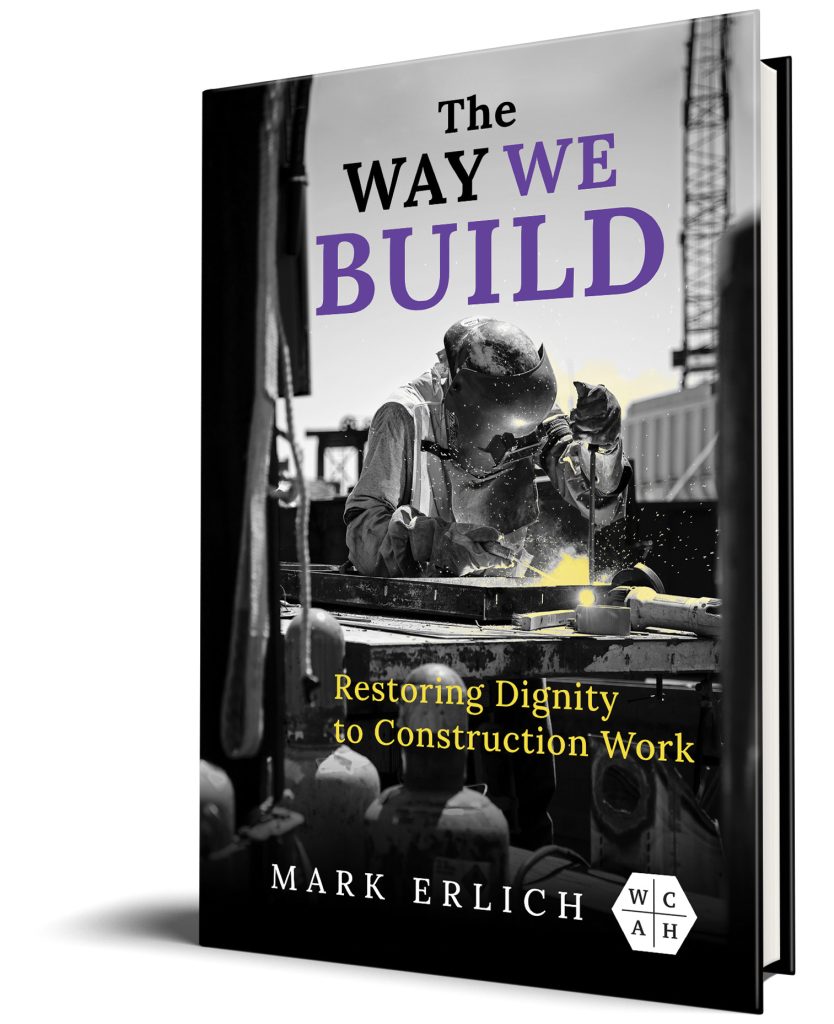Mark Erlich, author of The Way We Build: Restoring Dignity to Construction Work, answers questions on his new book.
Q: Why did you decide to write this book?
I planned on engaging the “future of work” discussion as it impacted construction. I felt that the broader conversation was aimed at other industries and did not reflect the reality of construction. Once I started writing about the future, I realized it would be stronger if I also included the past and the present to lay the foundation for the future. As a result, the focus changed into a broader historical narrative that examined the past, present, and future of this important industry – primarily from the perspective of the men and women who work in the field.
Q: What is the most interesting discovery you made while researching and writing your book?
I came across a horrifying story of fatalities on a 2019 project in New Orleans where two bodies were left unretrieved from the building debris for ten months
Q: What myths do you hope your book will dispel or what do you hope your book will help readers unlearn?
There is very little written about labor relations in the building trades. I’m hoping that the book will familiarize the reader with a subject that is largely unknown.
Q: Which part of the publishing process did you find the most interesting?
The whole process from start to finish is interesting. Going through the proofs was particularly intriguing.
Q: What is your advice to scholars/authors who want to take on a similar project?
There is an old cliché advising writers to write what they “know about”. That nostrum is highly relevant in my case since I’ve spent nearly 50 years in the construction industry.
Q: What do you like to read/watch/or listen to for fun?
I am a music buff – especially jazz, soul, and R&B

Mark Erlich is the Wertheim Fellow at The Center for Labor and a Just Economy at Harvard Law School and the retired Executive Secretary Treasurer of the New England Regional Council of Carpenters. His books include Labor at the Ballot Box: The Massachusetts Prevailing Wage Campaign of 1988 and With Our Hands: The Story of Carpenters in Massachusetts.

